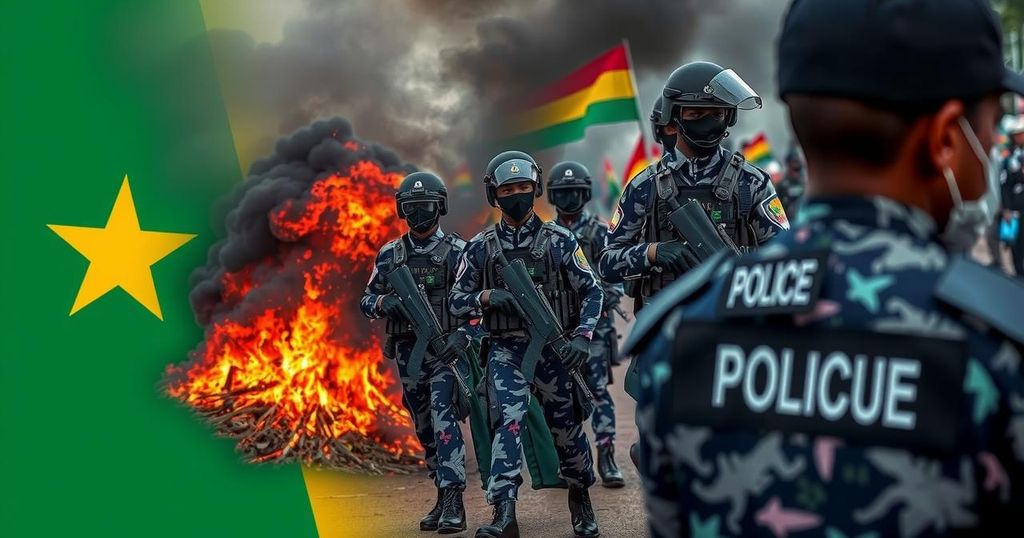The political climate in Mozambique has turned increasingly volatile after a disputed presidential election resulted in protests marked by police violence, leading to the tragic deaths of young demonstrators, including 16-year-old Antonio Juaqim. Citizens are expressing their dissent through nightly demonstrations, drawing attention to the long-standing issues of governance and economic struggle under the ruling Frelimo party.
In the capital of Mozambique, Maputo, grief envelops the community following the tragic death of a 16-year-old boy, Antonio Juaqim, during a protest against the results of the recent presidential elections. Antonio, who was participating in an opposition-organized demonstration, was fatally shot by police, prompting an outcry from families and activists alike, who accuse law enforcement of excessive force. The protests emerged after the ruling Frelimo party, which has maintained power since Mozambique’s independence, was declared the victor of an election marred by allegations of rigging by the opposition.
The situation escalated on November 15, as citizens began banging pots and pans each night to express their dissent, following calls from opposition leader Venâncio Mondlane, who denounced the electoral results and fled the country fearing arrest. The police, while expressing condolences to the victims’ families, denied responsibility for the deaths, suggesting that Mondlane’s supporters endangered themselves by using children as shields. Meanwhile, human rights organizations report a rising death toll among protesters, particularly among youths, reflecting a broader frustration with Frelimo’s prolonged governance without addressing the pressing needs of a young and economically struggling population.
During a funeral for Antonio, mourners, including young children, expressed their sorrow, highlighting the loss of life caused by the crackdown on dissent. His uncle recounted the brutal circumstances of his death, asserting that police were responsible, as corroborated by CCTV footage. Amid reports of escalating violence and accusations between the police and opposition supporters, it is evident that Mozambique is experiencing one of its most tumultuous periods since the establishment of its multi-party system.
As calls for justice reverberate throughout the nation, the plight of families and the cry for acknowledgment of an oppressed youth illustrate the urgent need for political change and reform in Mozambique’s governance and civil rights.
The recent presidential elections in Mozambique have been characterized by widespread allegations of malfeasance and discontent, particularly from the opposition party Renamo and its breakaway faction led by Venâncio Mondlane. Frelimo, the former liberation movement that has ruled for nearly half a century, claimed a decisive victory, which has been contested by Mondlane, resulting in protests from citizens frustrated by political stagnation and economic struggles. The protests, particularly the nightly pot-banging demonstrations, highlight the citizens’ increasing refusal to accept Frelimo’s continued dominance and their longing for fundamental changes in governance that address their socioeconomic conditions.
The ongoing crisis in Mozambique following the controversial presidential election underscores a deepening rift within the nation, primarily influenced by rising political discontent among the youth and strained relations between the ruling party and opposition groups. The tragic deaths of protesters, particularly minors, have ignited a sense of urgency for accountability and reform, as the populace collectively mourns the lost potential of their future leaders amid a fierce struggle for equitable governance.
Original Source: www.bbc.com







